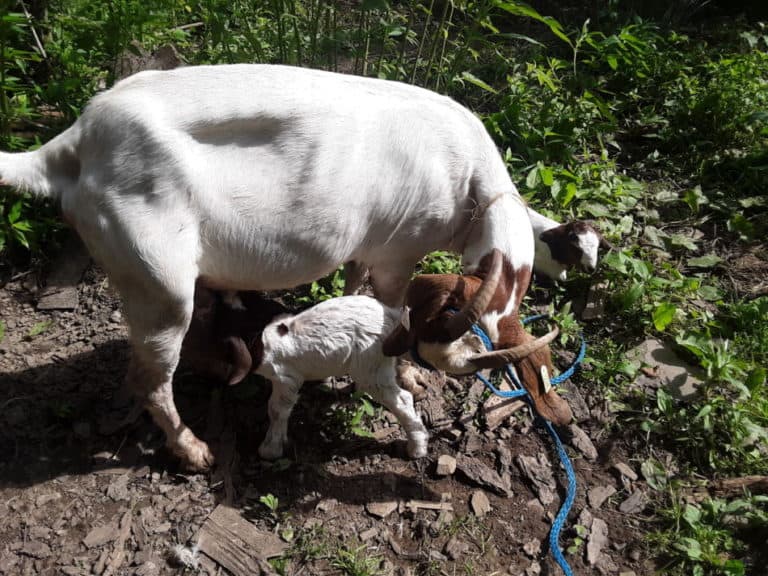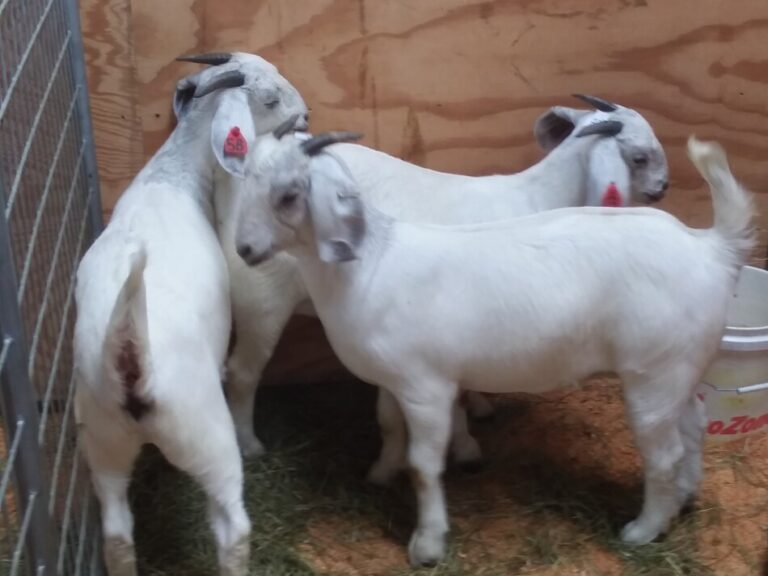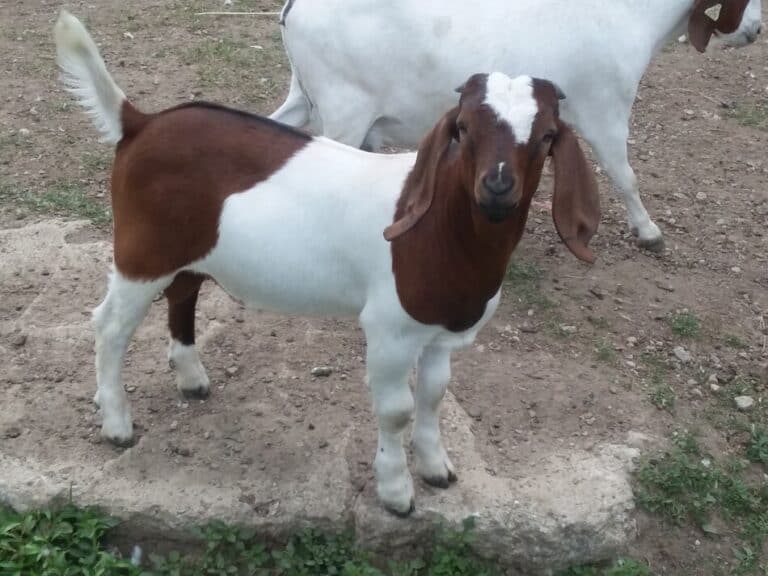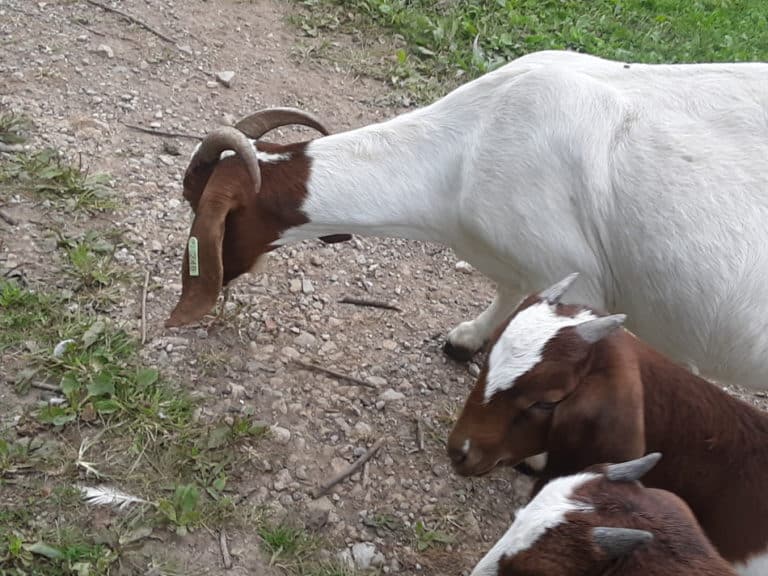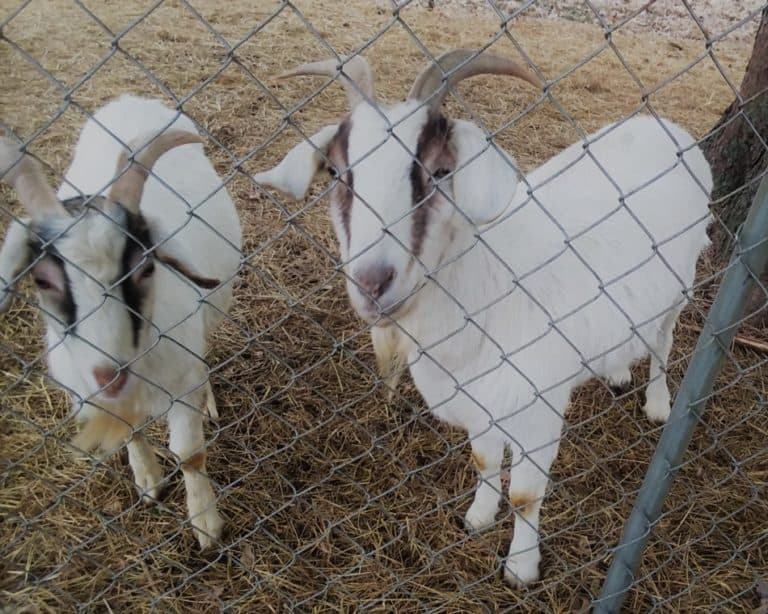Why Is Goat Meat So Expensive?
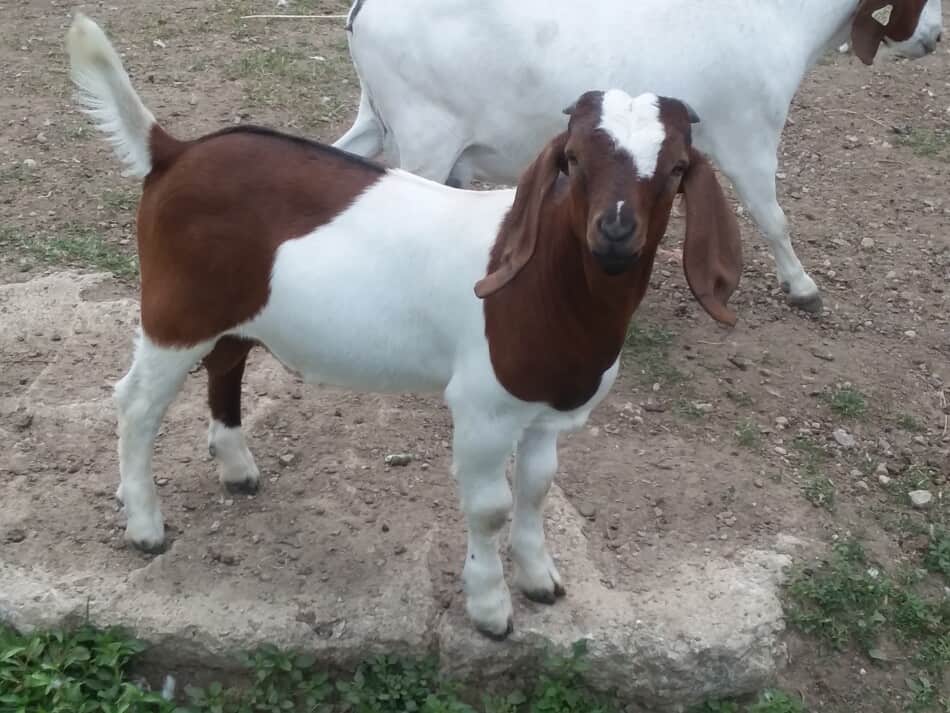
Goat meat is becoming more popular in the U.S., especially with many people wanting to choose a healthier meat.
With goats being so versatile (eating a variety of plants and can live nearly anywhere), why is the price of the meat high?
The price of goat meat is higher than most other meats because goats are challenging to raise (high nutritional and space needs) and the meat yield per goat is low (compared to other common meat animals).
| Goat meat source | Price per pound |
| Small farm raised, retail (sold online or directly from farm) | $17.00 and up |
| Small farm raised, whole or half (sold directly from farm) | $16.62 whole goat $18.24 half goat |
| Sold online, retail cuts (no specific source listed) | $15.49 and up |
| Sold online, whole or half (no specific source listed) | $13.63 cut up whole young goat $13.94 cut up half young goat |
| Custom butchered (buy the goat and have it butchered to your specifications) | $11.82 (based on buying a $275 goat) |
I just finished poking around online looking for goat meat prices, (I updated this article to be current with February 2021 prices).
I know the prices for live goats in our area, we go to auctions all the time, and I know the costs of having your own animal butchered and packaged for your freezer.
However, I have never shopped online for meat of any kind, so I was curious what I would find. In doing just a quick search, I found multiple farms and ranches selling goat meat direct to consumers.
I don’t know any of these farmers, so I can’t say how their animals are raised. I’m listing them because they were easy and quick to find and were courteous enough to list out prices for their products.
Here are two examples of farms selling goat meat in the U.S.:
- Mint Creek Farm has grass fed goat (and lamb), with the prices listed on the site. They even have an example listing the cuts you are getting and what you should plan on paying.
- Grande Natural Meats has goat and a variety of other meats available from their ranch in Colorado. They have a wonderful, very extensive price list (the best I’ve seen, so far) and good pictures of each packaged cut.
The prices I found in looking around generally started at $15.50 per pound and went up from there depending upon the cut and the packaging.
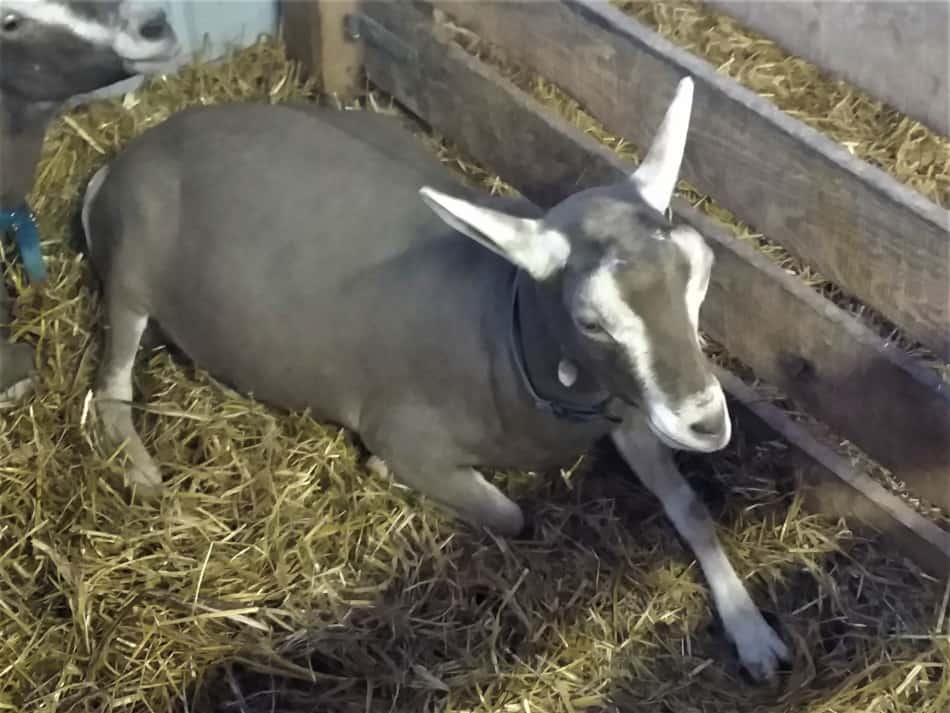
Is goat more expensive than beef?
“Goat will never be a cheap product,” says Anita Dahnke, executive director of the American Goat Federation. “You cannot feedlot goats like you can cattle.” That’s because they’re extremely susceptible to parasites, which are ingested from the soil and passed out through their manure. Overcrowding makes the problem exponentially worse.
Jan Greenberg, New Food Economy.org
This depends upon what you are looking at and what specifically you are comparing.
If you are comparing goat meat to the cheapo ground beef in the 10 pound tube packs in the meat section of the store, then yes, goat meat is much more expensive than beef.
If, however, you are looking into beef that was raised the same way as the goat meat was raised, which would be a much more accurate comparison, the prices are pretty close.
The main difference I can find is that goat does not have the cheapo confinement farmed version of meat available in the chain grocery stores (like cattle, pork, eggs and chicken currently do).
It’s not so much that goat is expensive, it’s that goat meat buyers do not have the cheapo purchasing options most other meat buyers have.
The meat from animals raised well and given the opportunity to live a happy, low stress life eating a biologically appropriate diet is more expensive to produce so it will cost more to buy.
This is true across the board, not just for goats.
This means you are getting a much higher quality and more nutritious meat when you purchase meat that was not raised in confinement, but in the end you still end up paying more for it.
How much does goat meat cost?
Prices for goat meat range from $13.63-18.24 per pound if you are getting a half or whole goat.
The price for the more popular cuts, the ones that sell out the fastest, will be higher, up to $33.00 per pound on the price lists I was able to find.
The variation in prices is normal supply and demand pricing.
Everyone wants the loin and not so many people want the organ meats. This is the case with all meat sales.
Lower cost/pound: buy & butcher a goat
The best way to get a lower price per pound of goat meat is to get a whole goat and have it butchered for your freezer.
The cost of the goat will be from $250-300 each, using current prices for my area. Update on May 5, 2021: prices for goats are rising, we have seen wethers sell for $600 each!
Plus you will need to pay for the hauling ($25) and the butchering ($90) per goat.
The butchering costs would include cutting, wrapping and freezing the meat. For complete details read Cost To Butcher A Goat.
We’ll do an example to give you an idea of what you would pay if you bought a goat and had it processed.
- $275 to purchase the live goat (an average price)
- $25 for the trucking to the processor
- $90 for the slaughter fee
Total cost to buy and butcher a goat=$390.00, which is $11.82 per pound of meat
Where to buy a goat, auctions and farms
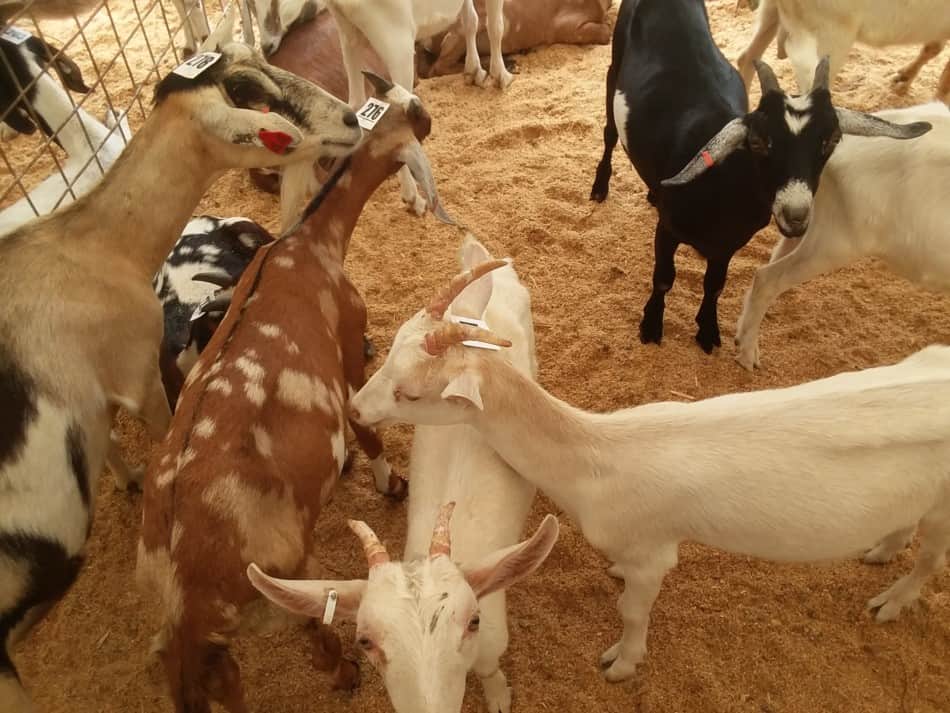
Where to get the goat from? A local farm is your best option or you can get one from the local livestock auction.
Look on the online ads after you have checked out the going prices for goats in your area by looking at the weekly auction reports.
You need to know the current prices for the type of goat you are hoping to buy. Plan to spend a bit more than going price, if you get the goats straight from the farm.
If you are hesitant about attending the auction yourself, have the order buyer (an auction employee) buy a goat for you.
I have an article explaining buying animals at a livestock auction, Buying At The Livestock Auction.
The article will be especially useful for people who are completely new to livestock auctions, listing out the general framework of how an auction is set up and how you can be ready to make a purchase that you are happy with.
Is there a market for goat meat?
Yes, there is a large market for goat meat in the U.S. Currently we, as a country, import more than half of the goat meat that is eaten here.
That means goat meat supply does not meet the current demand.
Why don’t more people raise goats, since the demand is so high for them?
Even managing the wormload of healthy animals takes a lot of skill and patience, says Suzanne Gasparotto, owner and educator at Onion Creek Ranch in Lohn, Texas. Because of the industry’s low profile, there are few if any commercial medicines available when goats get sick. In order to keep illness-prone herds healthy, you need a lot of land—the most experienced farmer might have trouble supporting more than a few animals per acre. And fewer animals per acre means fewer dollars.
Jan Greenberg, New Food Economy.org
The quote above explains part of the reason why demand exceeds supply. In order to raise healthy goats you need land and patience.
Not everyone considering raising animals has both.
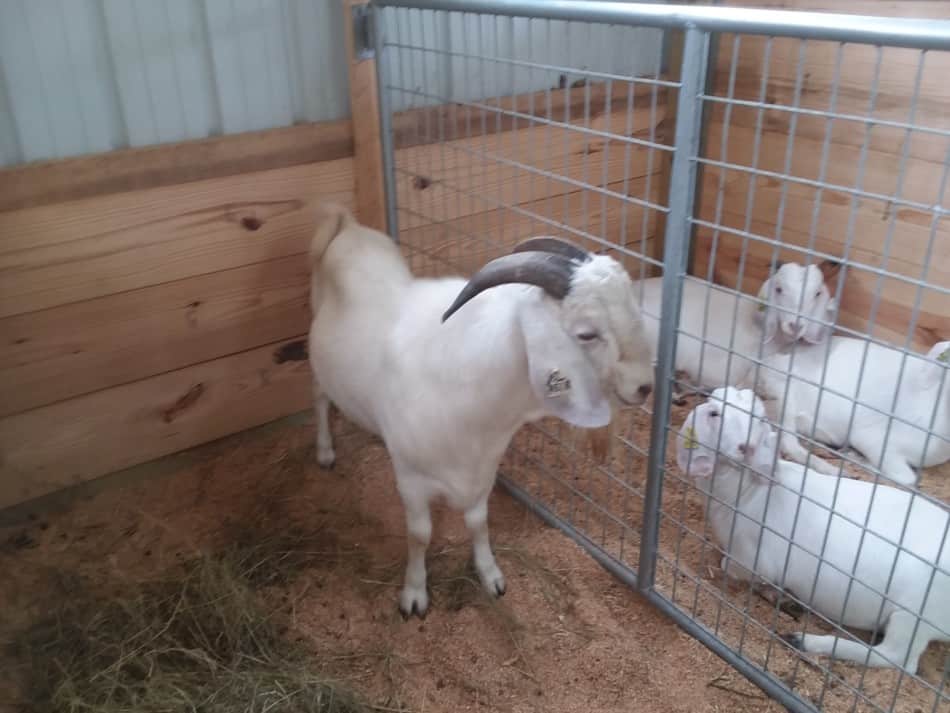
Many would be goat raisers do not have the land to raise healthy goats or do not have the time to wait for a few years until the goat herd starts to pay them back.
The money spent to get the goats and feed them for the first year will be returned to you in kid sales, if the doe has twins and you get a good price for those twins.
That just gets you back the money you spent to get started, you haven’t made any profit yet, let alone paid for your time, facilities, improvements, etc.
At the same time, Dahnke says, few slaughter facilities are willing to process and package goats. All in all, it adds up to a stark financial picture—the USDA estimates that 91% of goat producers make less than a fourth of their income from farming.
Jan Greenberg, New Food Economy.org
What do you call goat meat?
Goat meat is most commonly called chevon or cabrito in the U.S. Once the goat is an adult some people refer to goat meat as mutton, (which is the same term used to describe meat from mature sheep).
Anyone that I have spoken with who was interested in goat meat just called it goat meat.
Really, the terms are more about how you were raised, whether you say chevon or cabrito, and the age of the goat.
When do you butcher a goat?
Most goats are butchered between the ages of 6 months to just under 12 months. Some goats are butchered at a younger age, more like 4 months, but 6 months or older is more common.
Once the kid goat reaches 12 months of age it is no longer considered a “kid” and price generally drops for the live animal.
Most producers would want all their goat kids sold before they reach one year of age.
A goat can be butchered at any age that will give you the meat that you want from the carcass.
For instance, a younger goat kid, that would be smaller in body size would be for people looking to roast a whole goat.
People wanting to cut the goat up for the freezer would want a bigger goat to get more total meat.
Buy meat from older goats for less money and more flavor
Older goats are also butchered for food, some people prefer the taste of an older goat to that of a younger animal.
The advantage to an older goat is that there will be less fat and more meat on the carcass.
The meat will also have more flavor, as is the case of any older meat animal.
If you want the most goat meat for your money, get an older doe. You’ll get more flavor and a much lower price per pound of meat.
What kind of goat is a meat goat?
This is a tricky question. Strictly speaking, any goat used for meat is a meat goat.
Meaning any goat that is eventually sent to the food chain, regardless of age or breed, will be a meat goat.
As an example: consider a dairy doe, even though she spent her productive life as a milker, when culled she will be a goat used for meat.
However, when most people use the term “meat goat” they mean a goat breed that is specifically selected for a meatier carcass and is raised to produce meat kids only, (not to be used as a dairy goat).
Generally, this refers to Boer or Boer cross goats.
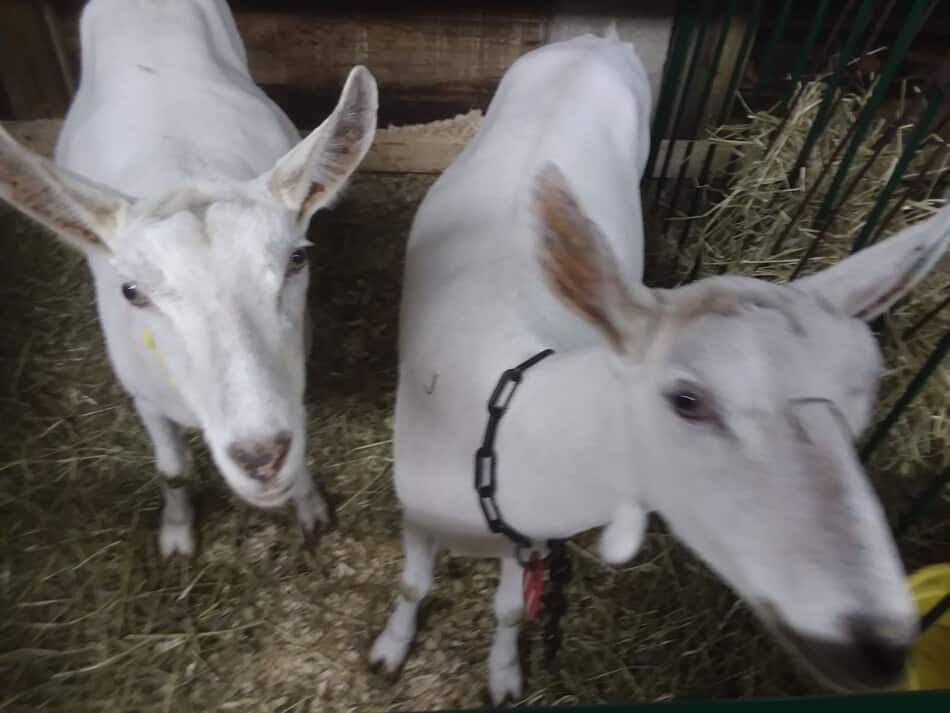
There are other meat goat breeds like Savanna, Kalahari, Tennessee Fainting Goat (the larger, meat type ones not the pets) and Kiko.
While these are all meat goat breeds that also produce high quality meat, they are less popular currently than the Boer.
Meat goats before the 1990’s in the U.S.
As an interesting note, before the 1990’s when what are now referred to as “meat goats” were imported, the most common meat goat was a dairy wether (a castrated male goat raised for meat).
While any dairy breed wether can be used for meat, the best known dairy goat for having a meaty carcass is the Nubian.
Nubians are a popular dairy breed, that has the advantage of being meaty when compared to the other dairy breeds of goats.
How long does it take to raise a meat goat?
This will depend upon how big you want the goat to be and the conditions in which it is raised.
If things go well for the goats and the farmer or rancher, goat kids will be ready to sell at 6-7 months of age.
If the local market prefers larger bodied kids or more finish (fat layer) on the goats, this will take longer, more along the lines of a year.
The other consideration is breed. A meat breed goat will reach the 60 pound weight faster than a dairy breed.
If the farmer is raising dairy wethers, castrated males from dairy breed does and bucks, the wether will take longer to get to the ideal selling weight, probably closer to a year.
The people we know that love to eat goat are looking for a dairy type wether rather than a meat breed.
They prefer a full size dairy type wether, (wethers only), that is just about a year old. (See the picture above for an example of a great looking dairy type goat.)
As mentioned above, the dairy type wethers will take longer to reach market weight.
This means more time spent taking care of the goat to get it to market weight and more feed to get it there, compared to selling the same wether at a lower weight.
Summary
The main reason goat meat is “expensive” is that goats can be challenging to raise and are not good candidates for confinement farm raising.
I do not support confinement raising livestock or agree with the idea, however, it would lower the price of the meat.
Resources: newfoodeconomy.org/the-goat-gap by jan greenberg
